A method called from the template, is called every change detection cycle. Because you are using the async pipe, the change detection is triggered with every emit. So basically you are creating an infinite loop and that's why it will never show a value, because the change detection never finishes:
- on view init template calls
foo$()
foo$() creates a -new- observable and delays the emit- the observable emits after the delay
- the emit triggers a change detection from within the
async pipe
- change detection calls
foo$() from the template, and we're back to step 2
It's not really clear what you are trying to achieve, but I don't think you should return Observables from methods to be consumed in templates. These should be readonly class field:
readonly foo$ = of("Delayed").pipe(delay(1));
It is however possible to use a method, but you have to make sure this method returns the same Observable:
private readonly _foo$: Observable<any> = of("Delayed").pipe(delay(1));
foo$(): Observable<any> {
console.log('here');
return this._foo$;
}
example
Because the observable object stays the same (===), it's all good in the hood. Once you add a pipe to the Observable you create a new reference and you come back into the infinite loop.
The reason it does not reach the infinite loop if you just return of('delayed'), is because the Observable is not asynchronous this way. The Observable will return a value immediately to the async pipe, and when the async pipe calls detectChanges() nothing really happens, because it's still in the same cycle as the change detection cycle which triggered the foo$() template call.
I see you also linked a previous question you posted which involves the use of a decorator. You should change that decorator to a class field decorator, and you can then do the following:
@NeedsElement(sp(115621), ap(116215))
readonly insuredType$!: Observable<string>;
I think I can think of a way to make it work with a method call, but before I dive into that, I first want to know why you want it to be a method call in the first place
